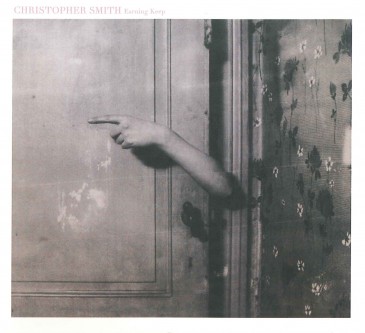
In Christopher Smith’s newest album, Earning Keep, blatant biblical references exist without agenda. The plight of Adam and Eve, Samson’s holy journey, and even the great dichotomy of heaven and hell, all hold within their piety valuable fables for the secular human experience. Indeed, Smith’s poetic lyrics draw upon the authority of religious imagery to empower ordinary human life and crown its trials extraordinary. Earning Keep is it’s own earthly scripture.
Each of the fourteen songs on the album exist in a wake of sorrowful content and instrumentation. Earning Keep amounts to a melodic cathedral, with Smith’s vocals as smooth and varied as stained glass. Among the many songs, there exists one basic division: some songs are Smith’s brief and private laments, and others swarm and surround the listener, demanding their inclusion.
The title track belongs in that first group, using just Smith’s voice and a simple piano riff to decry lost love. “Old Testament Violence,” “Young Curmudgeon,” and “Knives and Sickles” follow the same formula, while the shortest track on the album (40 seconds long), “Chapped Lips of the Mouth Breather” is wholly instrumental; a sparse chiming hum colliding with a guitar riff and collaborating on impact. It sounds like an unnoticed moment, and in its own way seems equally personal and pensive.
The second group of songs are Smith’s mightiest, and of those, three stand tall. “Pillars and Pyre,” the album’s single, imagines mortal struggle in spiritual context, with Smith’s voice a virtuous suggestion of the human condition. “No Light Could Pass Through Me So I Have a Shadow” is cleverly decorated in symbolism, beginning with Smith’s christening voice and the confident steps of a drumbeat walking closely behind. As the song unfolds, lines of lyrics are echoed by backing vocals, and like shadows shortening with the moving sun, these words seem to grow closer to the voice that they originally derived from. “Pins on a Line” begins like a breeze. Cymbals rattle and the drumsticks fall down like hollow wood, light as the first words, “Wandering, wandering.” The power in this song is derived from Smith’s ability to achieve delicate moments of instrumental and vocal partnering and then allow that partnership to expand and complicate with perfect transition. And as the chorus innocently cries, “We need a light, we need a light,” something very human seems divine.

